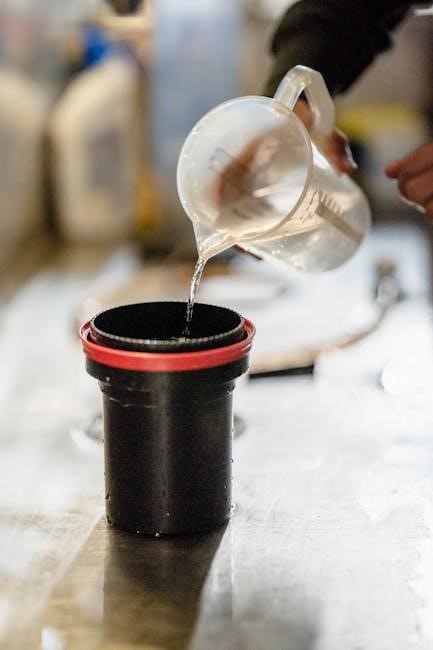rheem gas water heater troubleshooting manual
- Published
- in Manuals
Rheem gas water heaters are reliable, but issues can arise. This guide provides easy-to-follow troubleshooting steps and maintenance tips to address common problems, ensuring optimal performance and efficiency.
Overview of Common Issues
Rheem gas water heaters, like any appliance, can experience issues that affect their performance. Common problems include no hot water, error codes, pilot light malfunctions, leaks, and unusual noises. These issues often stem from faulty sensors, ignition system failures, or poor maintenance. Users may also encounter problems with temperature settings or gas supply disruptions. Leaks can arise from loose connections or corrosion, while strange noises may indicate sediment buildup or faulty heating elements. Error codes provide valuable clues, but understanding them requires reference to the user manual. Regular maintenance, such as checking the pilot light and cleaning the unit, can prevent many of these issues. Addressing these problems promptly ensures reliable hot water supply and extends the heater’s lifespan. Troubleshooting often involves simple steps, but complex issues may require professional assistance.
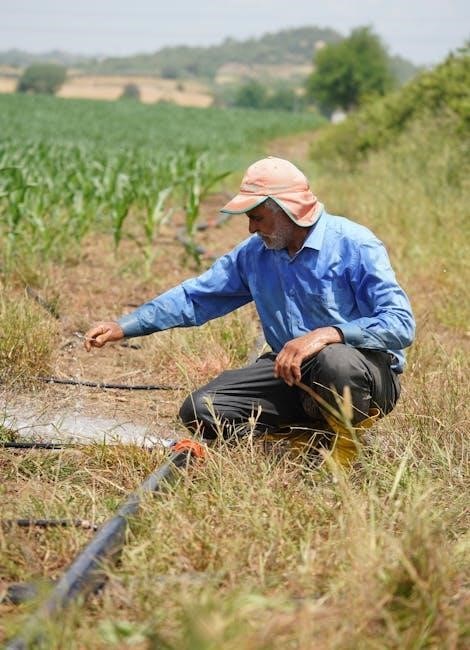
Importance of Regular Maintenance
Regular maintenance is crucial for extending the lifespan and efficiency of a Rheem gas water heater. Neglecting upkeep can lead to premature wear, higher energy bills, and unexpected breakdowns. Simple tasks like checking the pilot light, inspecting for leaks, and cleaning the unit can prevent major issues. Sediment buildup, for instance, can reduce heating efficiency and cause noise. Additionally, ensuring proper ventilation and checking gas connections helps maintain safe operation. Maintenance also helps identify potential problems early, avoiding costly repairs. By following the manufacturer’s guidelines and performing routine checks, homeowners can ensure consistent hot water supply and optimize their heater’s performance over time. Regular maintenance not only saves money but also enhances safety and reliability, making it a vital part of water heater ownership. Consistent upkeep ensures the unit runs smoothly for years, providing trouble-free service.
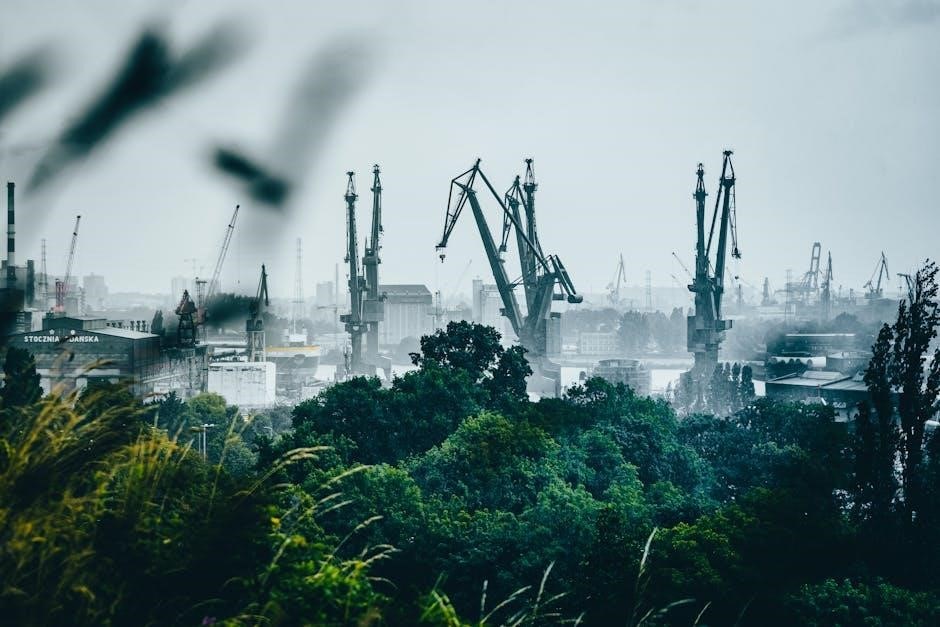
Common Problems and Solutions
Rheem gas water heaters may face issues like no hot water, error codes, pilot light problems, leaks, and strange noises. Troubleshooting these issues promptly ensures optimal performance and safety.
No Hot Water: Possible Causes and Fixes
If your Rheem gas water heater isn’t producing hot water, several factors could be at play. First, check if the pilot light is lit. A extinguished pilot light is a common issue, often caused by drafts or faulty ignition systems. Ensure the gas supply is turned on and verify that no error codes are displayed, as these can indicate specific malfunctions. Additionally, inspect the thermostat settings to confirm it’s not set too low. If the issue persists, there might be a problem with the gas valve, heating element, or temperature-pressure relief valve. In some cases, sediment buildup or faulty sensors can also disrupt operation. Consulting the user manual or contacting a professional for complex repairs is recommended to restore functionality. Regular maintenance can help prevent such issues from arising. Always prioritize safety when troubleshooting.
Understanding Error Codes and Their Meanings
Rheem gas water heaters use error codes to indicate specific issues, making troubleshooting easier. Codes like A005 or error messages related to temperature sensors signal potential problems. High-temperature errors may point to faulty sensors or blocked vents, while ignition-related codes could indicate issues with the pilot light or gas supply. Consult the user manual to match codes with their meanings, as each code corresponds to a specific component or system malfunction. Addressing these codes promptly can prevent further damage. If unsure, resetting the heater or consulting a professional is advisable to resolve the issue effectively and ensure safety. Understanding these codes empowers users to take appropriate action, whether it’s adjusting settings or replacing parts, to restore proper function. Regular checks can also help identify issues before they escalate.
Pilot Light Issues: Troubleshooting and Repair
Pilot light problems are common in Rheem gas water heaters and can often be resolved without professional help. If the pilot light won’t stay lit, check for drafts or blockages in the venting system. Ensure the gas supply is turned on and the gas valve is fully open. A faulty thermocouple or pilot light assembly may require replacement. To relight the pilot, refer to the user manual for specific instructions, as procedures vary by model. If the pilot light repeatedly goes out, inspect the burner chamber for dirt or debris and clean it thoroughly. In some cases, adjusting the pilot light’s airflow or replacing the pilot orifice may be necessary. Always ensure proper ventilation and follow safety guidelines when working with gas appliances to avoid hazards. If issues persist, consulting a licensed technician is recommended to diagnose and repair more complex problems. Regular maintenance can help prevent future pilot light issues.
Leaking Water Heater: Identification and Solutions
A leaking Rheem gas water heater can lead to significant water damage if not addressed promptly. Start by identifying the source of the leak, as this determines the repair steps. Common leak points include the temperature and pressure relief valve, drain valve, water inlet/outlet pipes, and the tank itself. If the leak is from the temperature and pressure relief valve, check if it’s due to excessive pressure or temperature. Inspect the drain valve for proper closure and ensure connections to inlet/outlet pipes are tight. For tank leaks, water damage is often irreversible, requiring a full replacement. Always turn off the power and water supply before attempting repairs. If the issue is minor, such as a loose connection, tighten it securely. However, if the leak is from the tank, contact a professional immediately to avoid further damage. Regular inspections can help prevent future leaks.
Strange Noises: Diagnosis and Remedies

Strange noises from your Rheem gas water heater can indicate underlying issues. Common sounds include rattling, clunking, or gurgling, often caused by sediment buildup, faulty heating elements, or loose connections. Sediment accumulation at the bottom of the tank can cause rumbling noises during heating cycles. To resolve this, drain the tank to remove mineral deposits. If the noise persists, inspect the heating element for damage or corrosion and replace it if necessary. Loose pipes or connections can also cause clanking sounds, so tighten any loose fittings. In some cases, a malfunctioning ignition system may produce unusual clicking or popping noises, requiring professional attention. Always turn off the power and water supply before attempting repairs. Regular maintenance, such as flushing the tank and checking connections, can prevent these issues and ensure quiet operation. If the problem persists, contact a licensed technician to avoid further complications.

Error Codes and Diagnostics
Rheem gas water heaters use error codes to identify issues. Codes like A005 indicate specific problems, such as temperature sensor malfunctions. Refer to the manual for detailed diagnostics and step-by-step solutions to resolve errors efficiently and safely.
Common Error Codes and Their Implications
Understanding error codes is crucial for diagnosing issues with your Rheem gas water heater. Codes like A005 often indicate temperature sensor problems, while others may signal issues with the ignition system or excessive temperatures. Each code corresponds to specific components, guiding you to the root cause. For instance, an E02 error might point to a faulty gas valve, while an E03 could indicate a malfunctioning igniter. Referencing the user manual or online resources provides detailed explanations and repair steps. Promptly addressing these codes helps prevent further damage and ensures your heater operates safely and efficiently. Regular maintenance can also help mitigate issues before they trigger error codes, saving time and money in the long run.
Step-by-Step Guide to Diagnosing Error Codes
Diagnosing error codes on your Rheem gas water heater involves a systematic approach. Start by identifying the specific error code displayed, such as A005 or E02. Next, consult the user manual or Rheem’s official website for a detailed explanation of the code. Once you understand the issue, perform a visual inspection of the related components, like temperature sensors or the ignition system. Use a multimeter to test sensors and ensure all connections are secure. If the problem persists, consider resetting the heater or replacing faulty parts. Always follow safety precautions, such as turning off the gas supply before troubleshooting. If unsure, contact a certified technician to avoid further complications. Regular maintenance can also help prevent errors, ensuring your water heater runs smoothly and efficiently over time.
How to Reset Your Rheem Water Heater
Resetting your Rheem gas water heater can often resolve minor issues. Start by turning off the gas supply to the unit. Locate the reset button, typically found near the thermostat or behind the access panel. Press and hold the button for 3-5 seconds until you hear a clicking sound. Release the button and wait a few minutes for the heater to restart. If the issue persists, ensure all connections are secure and check for error codes. Repeat the process if necessary. If the problem remains unresolved, contact a certified technician to diagnose and repair any underlying issues. Regular resets can help maintain functionality, but persistent problems may indicate a need for professional service.

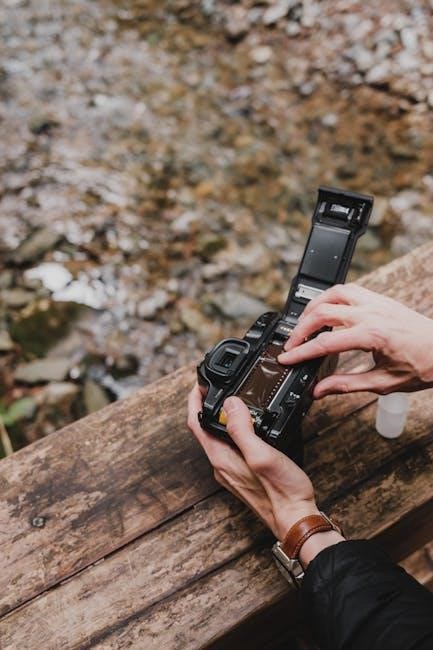
Pilot Light and Ignition System
The pilot light and ignition system are crucial for your Rheem water heater’s operation. Proper maintenance ensures reliable ignition and consistent water heating performance.
How to Check and Light the Pilot Light
To ensure your Rheem gas water heater operates efficiently, checking and lighting the pilot light is essential. First, locate the pilot light access panel, usually at the bottom or side of the unit. Open the panel and visually inspect the pilot light; it should appear as a small, steady blue flame. If the pilot light is out, turn the temperature control dial to the “Pilot” setting. Press and hold the pilot light button while simultaneously lighting the pilot with a long match or lighter. Once lit, release the button and ensure the flame remains steady. If the pilot light refuses to stay lit or appears unstable, it may indicate a faulty thermocouple or gas supply issue, requiring professional attention. Regular maintenance can prevent such problems and ensure reliable water heating performance.
Troubleshooting a Faulty Pilot Light
If your Rheem gas water heater’s pilot light is malfunctioning, start by checking for visible issues. Ensure the pilot tube is free from debris and obstructions. Dirt or dirt buildup can prevent the pilot light from igniting or staying lit. Next, inspect the thermocouple, as it plays a crucial role in maintaining the pilot light. A faulty thermocouple may cause the pilot light to extinguish frequently. If the pilot light is yellow or flickering, it could indicate improper ventilation or a gas supply problem. In such cases, ensure the surrounding area is well-ventilated and check for gas leaks. If issues persist, it may be necessary to replace the thermocouple or pilot assembly. Always refer to your Rheem manual for specific instructions, and consider consulting a professional if troubleshooting steps do not resolve the issue. Regular maintenance can help prevent pilot light problems and ensure safe operation.
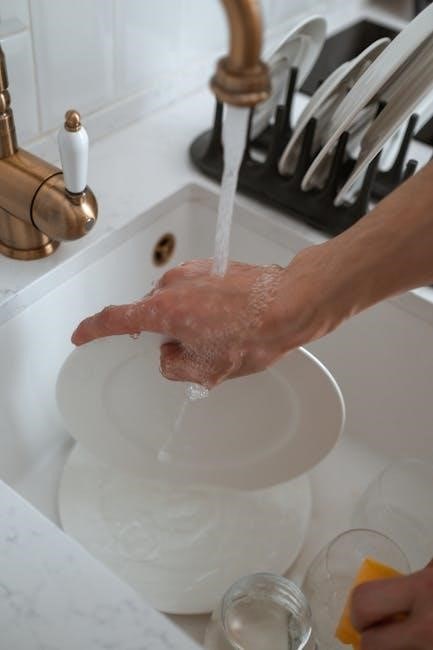
Ignition System Failures and Repairs
Ignition system failures in Rheem gas water heaters can prevent the unit from heating water. Common issues include faulty spark electrodes, worn-out igniters, or clogged burner ports. If the ignition fails to light, check for dirt or debris in the burner assembly. Clean the ports and ensure proper gas flow. A defective igniter or electrode may require replacement. Additionally, ensure the gas supply is turned on and there are no leaks. If the problem persists, inspect the ignition control module for damage or corrosion. Always follow safety guidelines when working with gas systems. Refer to your Rheem manual for specific repair instructions. If unsure, consult a certified technician to avoid hazards. Regular inspections can help identify and address ignition issues early, ensuring reliable operation and safety. Proper maintenance can extend the lifespan of your Rheem water heater’s ignition system.
